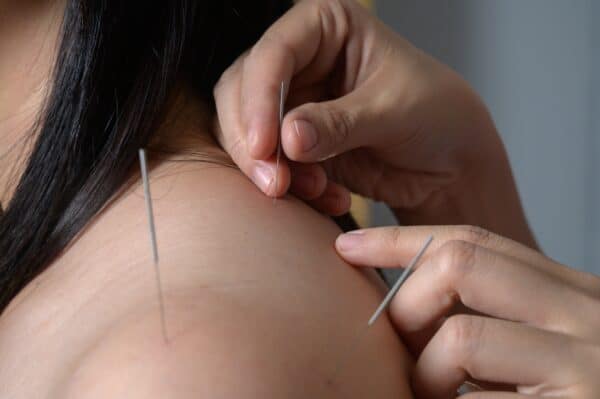Acupuncture, a key component of Traditional Chinese Medicine (TCM), has been practiced for thousands of years to promote health and treat various ailments. This ancient technique involves inserting thin needles into specific points on the body to balance energy flow and stimulate healing processes.
In this article, we’ll explore how acupuncture works, its benefits, and what to expect during a session.

How Does Acupuncture Work?
According to TCM, the body contains a vital energy called “qi” (pronounced “chee”) that flows through pathways known as meridians. Illness or discomfort is believed to result from disruptions or imbalances in this energy flow. Acupuncture aims to restore balance by stimulating specific points along these meridians.
From a modern medical perspective, acupuncture is thought to have several physiological effects:
- Nervous System Stimulation: Inserting needles into acupuncture points may stimulate nerves, leading to the release of endorphins and other neurotransmitters that can alleviate pain and promote a sense of well-being. hopkinsmedicine.org
- Improved Blood Circulation: Needle insertion can enhance local blood flow, which aids in tissue healing and reduces inflammation.
- Regulation of the Autonomic Nervous System: Acupuncture may influence the autonomic nervous system, helping to reduce stress and promote relaxation. healthline.com
Benefits of Acupuncture
Acupuncture is used to address a wide range of health issues, including:
- Pain Relief: Effective for chronic pain conditions such as back pain, osteoarthritis, and migraines.
- Stress and Anxiety Reduction: Helps to calm the mind and reduce symptoms of stress and anxiety.
- Improved Sleep: Can enhance sleep quality by addressing underlying issues that disrupt rest.
- Digestive Support: May alleviate gastrointestinal issues by promoting digestive health.
- Menstrual and Reproductive Health: Used to regulate menstrual cycles and support reproductive health.
What to Expect During an Acupuncture Session
If you’re considering acupuncture, here’s what typically occurs during a session:
- Initial Consultation: The practitioner will discuss your health history, current symptoms, and treatment goals.
- Examination: This may include observing your tongue and pulse, common diagnostic methods in TCM.
- Needle Insertion: The practitioner inserts thin, sterile needles into specific points on your body. You may feel a slight tingling or mild ache, but significant discomfort is uncommon.
- Needle Retention: Needles are usually left in place for about 20 to 30 minutes while you relax.
- Removal and Aftercare: Needles are removed, and the practitioner may provide recommendations for self-care or additional treatments.
Is Acupuncture Safe?
When performed by a qualified practitioner, acupuncture is generally considered safe. It’s important to ensure that your acupuncturist uses sterile, single-use needles to prevent infection. Some individuals may experience mild side effects, such as slight bruising or dizziness, but serious complications are rare.
Final Thoughts
Acupuncture offers a holistic approach to health by aiming to restore balance within the body. Whether you’re seeking relief from chronic pain, looking to reduce stress, or exploring complementary therapies, acupuncture may be a beneficial option. Always consult with a licensed and experienced practitioner to determine the best treatment plan for your needs.
Note: This article is for informational purposes only and should not replace professional medical advice. Consult with a healthcare provider before starting any new treatment.
